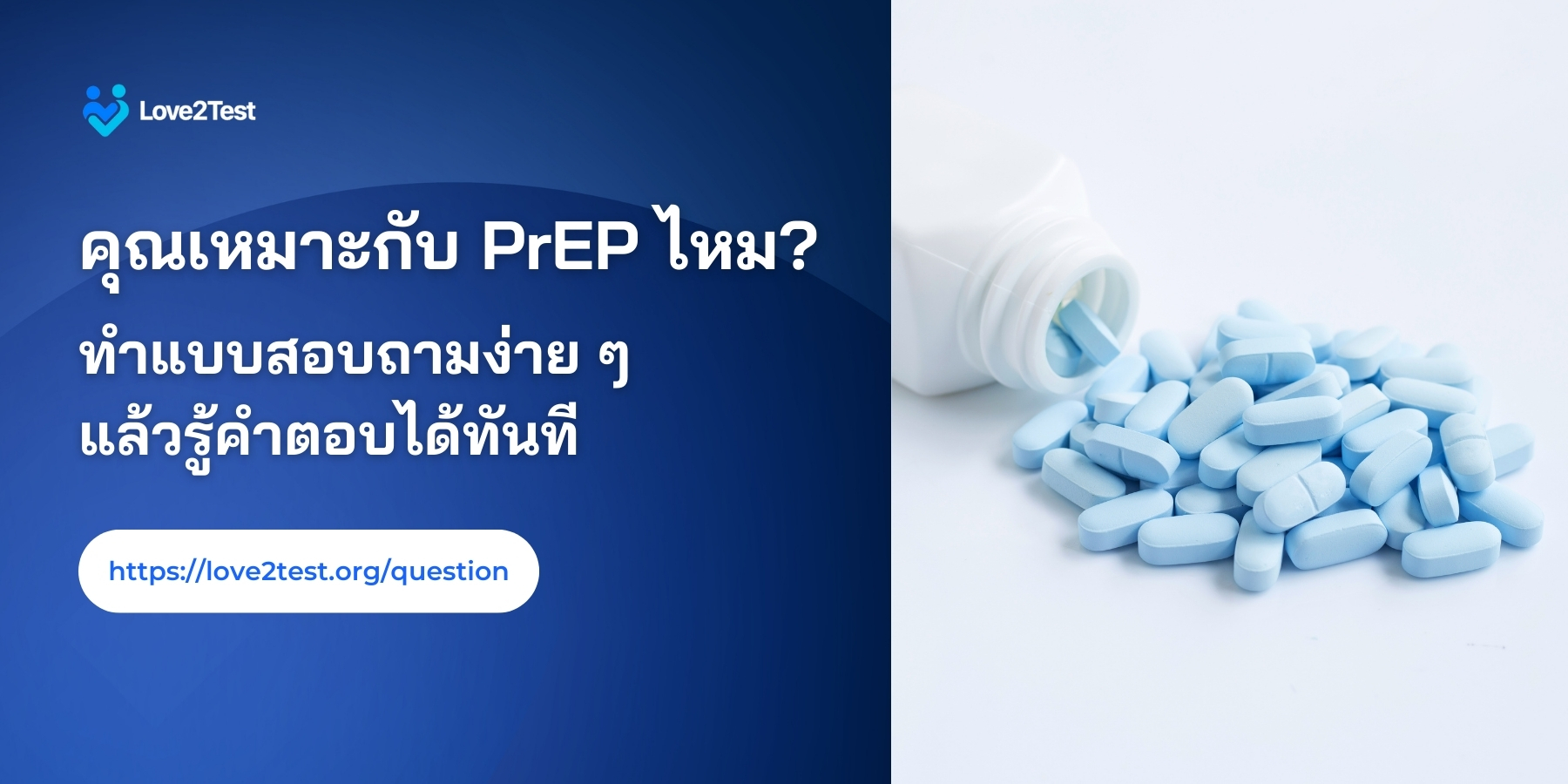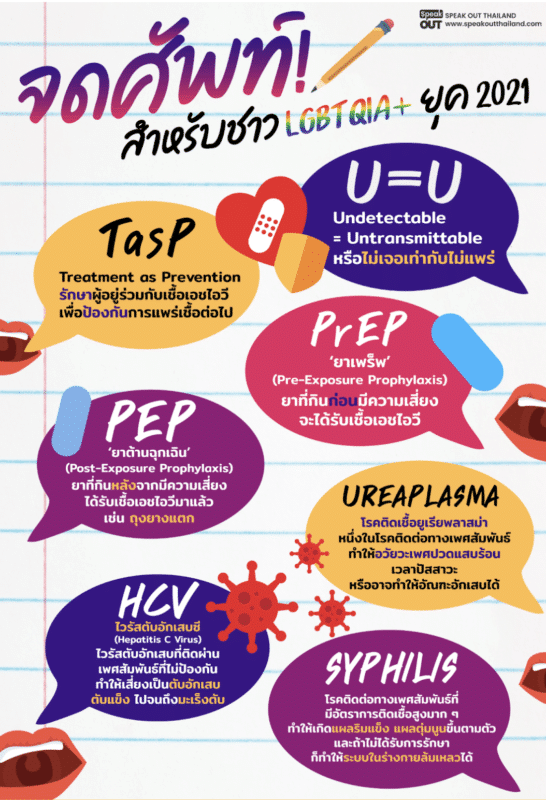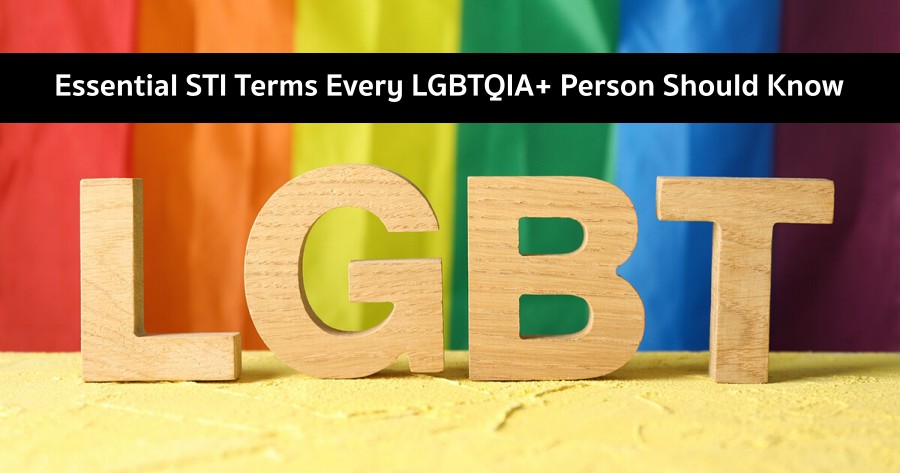Sexual health care is important for everyone, especially for the LGBTQIA+ community, who may face specific risks and require information tailored to their lifestyle. This article will cover and include terms related to sexually transmitted infections (STIs) that the LGBTQIA+ community should be aware of.
TasP vocabulary: Treatment as prevention
Treatment as Prevention (TasP) refers to the “treatment” of individuals living with HIV by consistently taking antiretroviral medications to control the HIV viral load to the lowest possible level. This becomes a form of “prevention” to stop the transmission of the virus to others.

PrEP
What we commonly hear as PrEP (Pre-Exposure Prophylaxis) is a medication that helps reduce the risk of contracting HIV. Before starting the medication, individuals must undergo blood and health tests. The medication should be taken at least 7 days before potential HIV exposure to allow the drug to build up in the body. We highly recommend using PrEP in combination with condoms to protect against both HIV and other sexually transmitted infections.
PEP
This is the name of the emergency medication (Post-Exposure Prophylaxis, PEP). Make sure to note down the name of this medication because if you’ve had a potential HIV exposure—whether due to a condom breaking or unprotected sex—you’ll need to use it. This medication is most effective in preventing HIV when taken within 72 hours of exposure, and the sooner you take it, the better!
Ureaplasma
Ureaplasma infections, which can be transmitted through sexual contact, are usually harmless. However, if the body is weakened, they can cause unwanted symptoms such as a burning sensation in the genital area during urination, discharge, and may even lead to testicular inflammation.
HCV
Hepatitis C Virus (HCV) is a popular virus that is commonly transmitted through unprotected sex. If you contract the Hepatitis C virus, it increases your risk of developing hepatitis, liver cirrhosis, and even liver cancer.
Syphilis
Syphilis is one of the sexually transmitted infections (STIs) that has been increasingly prevalent each year. It can affect individuals of all genders if sexual activity is unprotected. In its early stage, syphilis causes painless sores known as chancre. If left untreated, it can progress to the secondary stage, leading to rashes, raised bumps resembling warts, appearing on the body, palms, soles of the feet, and genital area. If it reaches the final stage, it can cause severe complications such as paralysis, deafness, heart disease, and even organ failure.
Sexually transmitted infections (STIs) can be detected and treated early, so getting tested is key to maintaining good health. If you have the time, don’t forget to get tested!
You can book an HIV test, PrEP, PEP, and more easily and confidentially at:
➡ love2test.org/th/clinic
Knowing the essential terminology related to STIs is important for the LGBTQIA+ community to maintain health and prevent diseases. Key terms to know include STIs/STDs, PrEP, PEP, as well as terms related to specific infections like HIV, syphilis, gonorrhea, and the appropriate prevention and treatment methods.
#NoTestNoSpread #TasP #PrEP #PEP #HCV #Ureaplasma #Syphilis
Post Views: 2,138




